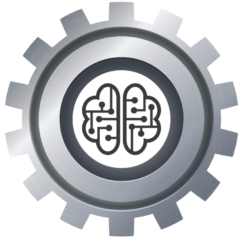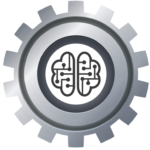Over the years, technology has been transforming the healthcare industry, and Python has been at the forefront of this transformation. Python is a high-level programming language that is widely used in healthcare (and other) industries for a wide range of applications, including data analysis, artificial intelligence, machine learning, and more. As an experienced healthcare professional at Universal Health Services, I have seen the impact of Python firsthand and have personally utilized it to streamline tasks, reduce time loss, and improve data extraction for analysis.
Python in Healthcare Data Analysis
In the healthcare industry, data analysis is crucial, as it helps identify trends, patterns, and insights that can improve patient outcomes and reduce costs. Python is an ideal tool for data analysis, as it has a wide range of libraries and packages that can help healthcare professionals analyze complex data sets quickly and efficiently. Python libraries like NumPy, Pandas and Matplotlib allow healthcare professionals to manipulate and visualize data, making it easier to identify trends and patterns that can inform clinical decisions. Over the years, my role has changed during the 20 + years at Universal Health Services. Within that time, I continue to utilize Python as a key tool. In each company, the employee requires certain tasks to be completed, but may not have the perfect tool. I personally create Python programs for repetitive tasks and reduce time loss which allows me to focus on critical issues and data extraction for analysis. Python is one of my many certifications,
Python in Healthcare Artificial Intelligence and Machine Learning
Artificial intelligence (AI) and machine learning (ML) are revolutionizing the healthcare industry, enabling healthcare professionals to make better decisions, improve patient outcomes, and reduce costs. Python is a popular language for AI and ML applications in healthcare and other industries, thanks to its simplicity, versatility, and powerful libraries. With Python, analysts can develop intelligent systems that can learn from data, identify patterns, and make predictions. Python libraries like TensorFlow, Keras, and PyTorch allow healthcare professionals to develop complex AI and ML models that can be used to diagnose diseases, identify risk factors, and more.
Python in Healthcare Automation
Repetitive tasks can be time-consuming and tedious, and they can take away from critical issues. Python can be used to automate repetitive tasks, allowing the analyst to focus on more critical issues. Python programs can be developed to automate tasks like data entry, patient scheduling, and more, freeing healthcare professionals to focus on more pressing matters. I personally have created Python programs to extract data from access databases and program files such as ini and config, importing them into spreadsheets for backup content as well as utilizing them with my Power BI reports.
Teaching Python
As an experienced healthcare professional working in Information technology for over 20 years, I have seen the benefits of Python firsthand. That’s why I have been teaching Python to students, sharing my knowledge with the next generation about critical thinking and the use of this powerful tool. My YouTube channel has Python videos that provide an introduction to the language and its applications. By teaching Python to students, I hope to help them unlock the potential of this powerful tool.
In Summary
Python has been revolutionizing the healthcare industry, enabling healthcare professionals to analyze data, develop intelligent systems, automate tasks, and more. As an experienced healthcare professional, I have seen the benefits of Python firsthand, and I continue to utilize it to streamline tasks, reduce time loss, and improve data extraction for analysis. Python is a powerful tool that has the potential to transform the healthcare industry, and I look forward to seeing what the future holds as more healthcare professionals adopt this versatile programming language.
#infobymattcole
 You can check out Matt’s LinkedIn account, Youtube Channel, or Podcast.
You can check out Matt’s LinkedIn account, Youtube Channel, or Podcast.Introducing my new books, ‘The Art of Critical Thinking’ and ‘The Critical Thinking Model’. Both can be read for free with Kindle Unlimited or $2.99 each via Kindle.

